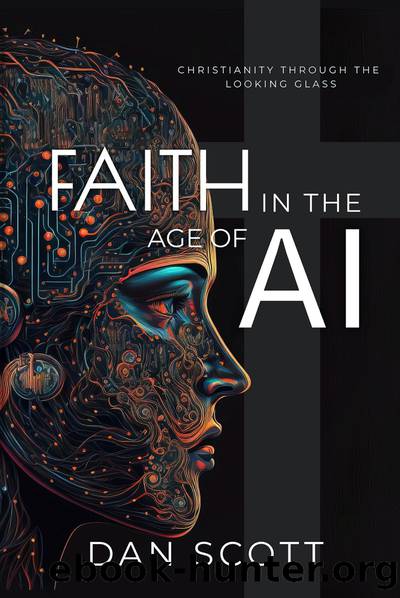Faith in the Age of AI by Elicia Hyder

Author:Elicia Hyder
Language: eng
Format: epub, pdf
Publisher: Eleison Press
Christian Theology and Nature
As you will recall, Maximus the Confessor and John Scotus Eriugina were both suspected of pantheism for their claim that consciousness was not unique to human beings. Although Christians of all times and places have believed in the existence of non-material conscious beings, it has not been common for Christians to think of animals as possessing consciousness. Too much talk of animal and plant intelligence seemed to reek of pantheism and animism, types of spirituality that the early Christians had confronted and overcome.
Both writers were misunderstood, both in their own time and in the centuries since.
Civil and religious leaders found Eriuginaâs writings, including his translation of Maximus into Latin, beyond their comprehension. They thus did everything within their power to discredit and isolate his influence. Also, continental Europeans probably found Eriugina suspicious. Celtic spirituality usually struck other Europeans as a bit strange. Even St. Patrick had suffered from that Continental mistrust.
Actually though, Maximus and Eriugina saw deeper into things than their peers. It would be wrong to claim that these writers had premonitions of discoveries that would come later in modern genetics, sociology, and computer science. However, it is not wrong to claim that they came close to describing the functions of RNA and DNA. St. Maximus, in fact, hints at a theory of consciousness that had much in common with what we now call panpsychicism, a view held by a number of prominent contemporary neurologists.
As an aside, several Christian writers in late antiquity hint at discoveries made in our own time. For example, the Cappadocian fathers (4th century CE), speculated about how space and time were probably the same thing. Fortunately for the Cappadocians, their speculations about this were too far âout thereâ for their peers to give it much thought. Besides, these ideas were bantered in private correspondence by the two brothers, their sister, and Gregory Nazianzus, who happened to be the Patriarch of Constantinople.
Maximus and Eriugina, in contrast, shared their philosophical insights with the world. Their belief that a created thing contains logos, seemed to imply both that the universe as a whole was conscious and that all the parts of the universe were conscious as well. Carried to the extreme, this assertion implied that mind everywhere was simply a manifestation of the Mind of God, which was incompatible with scripture.
The Hebrew prophets had bitterly denounced pantheistic spirituality, especially as they encountered it in the fertility cults. The Hebrews insisted that God had neither emerged from the universe nor was the sum of its parts. God had created the universe and defined it and its contents different and distinct from Himself. Although âthe heavens declare the glory of God,â creation was Godâs messenger, not Godâs face. The Hebrews prayed, âthe earth is the Lordâs and all it contains,â which was not to be interpreted as defining the earth as Godâs body.
Maximus and Eriugina were careful to affirm this biblical perspective. Although both writers viewed creation as an epiphany, they denied it was an incarnation.
An
Download
This site does not store any files on its server. We only index and link to content provided by other sites. Please contact the content providers to delete copyright contents if any and email us, we'll remove relevant links or contents immediately.
Rich Dad Poor Dad by Robert T. Kiyosaki(6632)
Bad Blood by John Carreyrou(6621)
Principles: Life and Work by Ray Dalio(6447)
Playing to Win_ How Strategy Really Works by A.G. Lafley & Roger L. Martin(6304)
Management Strategies for the Cloud Revolution: How Cloud Computing Is Transforming Business and Why You Can't Afford to Be Left Behind by Charles Babcock(4572)
The Confidence Code by Katty Kay(4260)
Thinking in Bets by Annie Duke(4227)
American Kingpin by Nick Bilton(3886)
Delivering Happiness by Tony Hsieh(3425)
Project Animal Farm: An Accidental Journey into the Secret World of Farming and the Truth About Our Food by Sonia Faruqi(3221)
The Power of Habit by Charles Duhigg(3139)
The Tyranny of Metrics by Jerry Z. Muller(3072)
The Marketing Plan Handbook: Develop Big-Picture Marketing Plans for Pennies on the Dollar by Robert W. Bly(3062)
Brotopia by Emily Chang(3054)
Mastering Bitcoin: Programming the Open Blockchain by Andreas M. Antonopoulos(3042)
I Live in the Future & Here's How It Works by Nick Bilton(2997)
The Content Trap by Bharat Anand(2924)
Building a StoryBrand by Donald Miller(2912)
Applied Empathy by Michael Ventura(2904)
